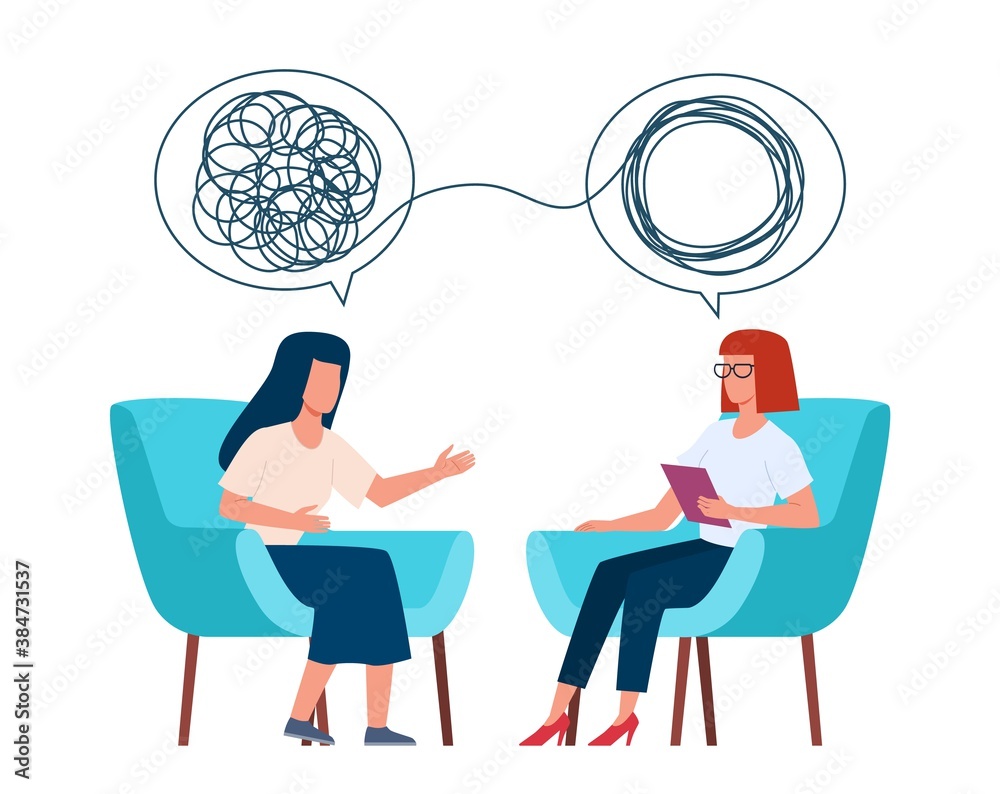Your Path to Recovery: Insights from the Best Psychologist in Delhi
Psych Treatment: A Comprehensive Guide to Methods and Outcomes

Cognitive-Behavioral Therapy
Cognitive-Behavioral Therapy (CBT) is an extensively used psychotherapeutic method that focuses on recognizing and customizing useless reasoning and behavior patterns. Created in the 1960s by Aaron T. Beck, CBT integrates cognitive and behavioral concepts to attend to various psychological health concerns, including anxiety, stress and anxiety, and stress-related disorders. The facility of CBT is that maladaptive thoughts add to psychological distress and maladaptive behaviors. By reorganizing these thoughts, individuals can attain considerable renovations in their emotional wellness and daily functioning.
CBT is defined by its organized, goal-oriented nature. Treatment usually entails a joint procedure in between the specialist and customer, where details troubles are recognized, and sensible strategies are developed to resolve them. Strategies such as cognitive restructuring, exposure therapy, and skill-building exercises are typically utilized. Cognitive restructuring involves challenging and modifying adverse idea patterns, while exposure therapy aims to lower anxiety and anxiousness via progressive exposure to feared objects or scenarios.
Evidence-based research study supports the efficacy of CBT for a large range of mental problems - Best Psychologist in Delhi. Its focus on skill purchase and self-help techniques encourages clients to proceed development independently after treatment wraps up. The flexibility and efficiency of CBT have actually made it a foundation in modern psychotherapeutic method
Psychodynamic Approaches
Rooted in the very early theories of Sigmund Freud, psychodynamic strategies concentrate on checking out the unconscious mind and its influence on actions and emotions. These approaches aim to discover surprise thoughts and sensations that might be driving maladaptive behaviors and emotional distress. Central to this method is the principle of inner dispute, frequently originating from unresolved past experiences, specifically those from childhood.
Therapists using psychodynamic strategies employ a number of vital methods, consisting of cost-free association, where individuals are urged to talk freely to expose subconscious material, and desire evaluation, which interprets the concealed web content of dreams. Additionally, the exploration of transfer and countertransference characteristics within the healing relationship is important. These communications can give understandings into the patient's interior world and relational patterns.
Psychodynamic therapy is normally longer-term contrasted to various other modalities, offering a deep and extensive understanding of the person's subconscious. Study shows that it can be specifically reliable for complex mental health and wellness problems, such as character conditions and chronic depression. By fostering self-awareness and emotional insight, psychodynamic treatment looks for to bring subconscious product to consciousness, enabling individuals to attain long-term and purposeful adjustment in their lives.
Humanistic Methods
Building on the foundations laid by psychodynamic strategies, humanistic strategies use an unique point of view concentrated on individual potential and self-actualization. Stemming in the mid-20th century, these strategies prioritize the fundamental goodness and growth possibility of people, highlighting a holistic sight of human experience. Secret figures such as Carl Rogers and Abraham Maslow have actually substantially influenced this therapeutic strategy, which includes methods like client-centered treatment and Gestalt therapy.
Client-centered treatment, developed by Rogers, plays an essential role in humanistic strategies. The therapist's function is more of a facilitator than an authority, motivating customers to harness their inner resources for recovery.
Gestalt therapy, one more essential humanistic technique, stresses existing moment understanding and the integration of mind and body. By concentrating on the "present moment," clients get greater understanding into their current emotions and actions. Strategies such as role-playing and assisted visualization are usually utilized to aid clients acquire More Info a much deeper understanding of themselves, inevitably resulting in improved self-awareness and fulfillment.
Integrative Therapies
Integrative therapies stand for a synthesis of numerous therapeutic techniques tailored to satisfy the one-of-a-kind demands of each client. This technique recognizes the intricacy of human psychology and the complex nature of mental health issues. By integrating aspects from various institutions of psychiatric therapy-- such as cognitive-behavioral treatment (CBT), psychodynamic treatment, and humanistic strategies-- integrative treatments supply an even more adaptable and all natural therapy standard.
Practitioners of integrative therapy assess each client's specific needs, symptoms, and personal background to design a customized therapy strategy. This customized method improves the capacity for restorative success by addressing the origin triggers of mental distress and promoting overall health. Strategies could include mindfulness exercises, cognitive restructuring, and emotional handling, each chosen to target different facets of the customer's problems.
In addition, integrative treatments emphasize the healing partnership, seeing the client-therapist bond as an important element of reliable therapy. This relationship cultivates a helpful atmosphere where customers feel safe to check out and address their problems. The versatility of integrative treatments makes them appropriate for a wide variety of problems, including anxiousness, anxiety, injury, and interpersonal troubles, thus raising their applicability and efficiency in varied medical setups.

Determining Therapy End Results
Assessing the effectiveness of psychiatric therapy is essential for both medical professionals and clients to make certain that the treatment is generating the preferred end results. To accomplish this, numerous methods and devices are employed to determine treatment results methodically. Standardized evaluation tools, such as the Beck Depression Supply (BDI) and the Generalized Anxiety Condition 7 (GAD-7), give quantitative data on signs and symptom seriousness and modifications over time.
In addition to standard devices, qualitative methods like customer self-reports and professional interviews offer useful understandings into the individual experiences and perceived development of customers. Routinely arranged examinations, typically at the beginning, navel, and end of treatment, aid in tracking the trajectory of improvement or determining areas requiring modification.
End result dimension is not restricted to symptom reduction; it likewise includes practical renovations in every day life, such as better interpersonal relationships, enhanced work productivity, and enhanced overall wellness. Modern developments in digital health and wellness have presented mobile applications and on the internet platforms that help with real-time tracking and feedback, further refining the analysis procedure.
Eventually, a detailed technique to determining therapy outcomes ensures that healing treatments are efficient, effective, and tailored to meet the specific requirements of you can find out more clients, thereby optimizing the total restorative experience.
Final Thought
Psychotherapy offers a multifaceted variety of methods aimed at addressing specific psychological health and wellness issues and boosting general well-being. Cognitive-Behavioral Treatment and psychodynamic techniques target subconscious influences and useless thoughts, specifically. Humanistic methods concentrate on individual growth and self-actualization, while integrative treatments integrate numerous techniques for tailored therapy plans. Examining therapy end results through qualitative methods and standard assessments makes certain an extensive understanding of effectiveness, eventually leading clients toward enduring psychological wellness improvements.
From the structured method of Cognitive-Behavioral Treatment (CBT) to the deep expedition of the subconscious in psychodynamic treatment, each method brings distinct benefits. Its focus on skill purchase and self-help strategies empowers clients to continue development independently after therapy concludes (Best Psychologist in Delhi). Key numbers such as Carl Rogers and Abraham Maslow have actually substantially influenced this restorative technique, which encompasses methods like client-centered treatment and Gestalt therapy
